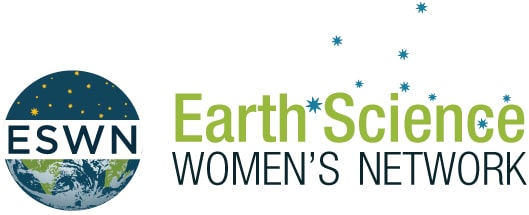ESWN: The Non-Profit
Press Coverage:
Press Release from the University of Wisconsin–Madison
Press Release from Brown University
New Non-Profit Launches to Promote Women in Science
Press Contacts:
Prof. Tracey Holloway, taholloway@wisc.edu Cell 608.443.6678
Prof. Meredith Hastings, Meredith_Hastings@brown.edu Cell 206.778.9656
PRESS RELEASE – Wednesday, October 8, 2014
Rarely is a new non-profit organization born with an international reputation, over 2000 members, and a mandate to improve the lives of women in science. But, that happened today, as the Earth Science Women’s Network (ESWN) formally launched itself as an organization dedicated to the career development for women in the geosciences.
Although ESWN has been serving women in oceanography, atmospheric science, geology, and other branches of the earth sciences for over a decade, the transition to a non-profit is a major step forward for the group. Until now ESWN operated as an informal network of scientists, with activities coordinated by an eight-person leadership board of early- and mid-career women. Core activities include online discussions, peer mentoring, and networking events organized by members from Honolulu, Hawaii to Kiel, Germany.
Tracey Holloway, a professor at the University of Wisconsin–Madison and co-founder of ESWN says, “It is amazing all the things we were able to do as a grassroots organization – until now, we never even had a group bank account!” For the past ten years, ESWN has received support from a wide range of organizations and universities, including the National Science Foundation (NSF), the National Center for Atmospheric Research (NCAR), and the National Oceanic and Atmospheric Administration (NOAA). The group has benefited from a wide range of in-kind support, including event co-hosting and web servers from the American Geophysical Union (AGU), and part-time staff support funded by the University of Wisconsin–Madison 4W Initiative for Women and Wellbeing. Without a standing budget, however, ESWN was not able to reserve event spaces, pay for website maintenance, or even cover the cost of a conference call.
Now, the group’s leadership hopes to engage donors to invest in the successful programs of ESWN, and to better serve the needs of female graduate students and scientists. Holloway says, “Now, we can do basic things like host meetings and maintain our website, as well as launch exciting new initiatives.” These include broadening access to professional development workshops, extending the scope of ESWN activities to include college and high school students, and providing small grants to overcome barriers to career success.
Meredith Hastings, a Brown University assistant professor and ESWN co-founder emphasizes how small investments can really make a difference. “I have two little girls, ages two and three — luckily my university [Brown] has provided some extra support for childcare for work-related travel… but this is really unusual. Many of our members have to limit career-advancing travel, like giving talks at major conferences or doing fieldwork because they cannot afford to bring their kids and care-provider with, nor can they afford to leave them at home and hire extra babysitters. It is a catch-22, where a small amount of support could make a huge difference.”
ESWN is led by a board of eight scientists, spanning career stages, work environments, and regions from Florida to Wisconsin, Colorado to Rhode Island. More information on ESWN is available at www.eswnonline.org.

